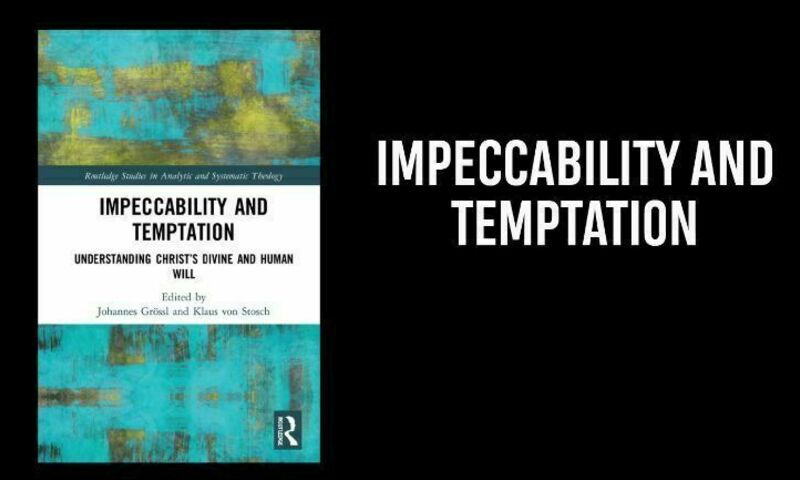In 14 chapters, scholars from Germany, the United Kingdom and the United States collaborate on the many difficult issues of Jesus' impeccability and temptation in the new book Impeccability and Temptation: Understanding Christ's Divine and Human Will edited by Johannes Grössl and Klaus von Stosch. The book was produced from three years of workshops in the Analytical Christology project, funded by the John Templeton Foundation. Theologians from Roman Catholic, Protestant and Islamic traditions contributed chapters.
Good Book Blog readers will likely be familiar with myself, who wrote chapter 6, “Seven Questions Ingredient to Jesus Christ’s Temptation,” and author and philosopher Oliver D. Crisp who wrote chapter 10, “The Divine and Human Will of Christ.”
My part in this project was an unexpected return to the topic of my dissertation (A Relational Model of Christ’s Impeccability and Temptation, SBTS, 2005). I had already been able to work on my dissertation for an additional two years preparing for publication in 2009 in my theological monograph — Tempted for Us: Theological Models and the Practical Relevance of Christ’s Impeccability and Temptation, Paternoster, Wipf & Stock.
In preparing to participate in the Analytical Christology project I was able to work again on my theology of Jesus’ temptation and impeccability. I am surprised at how much my thinking has developed in the last ten years. I also learned during the experience from doing theology with Roman Catholic scholars in Germany and engaging with the participants in the workshops at the University of Wurzburg.
Here’s a peak into what you’ll find in the book: “In Christian theology, the teaching that Christ possessed both a human and divine will is central to the doctrine of two natures, but it also represents a logical paradox, raising questions about how a person can be both impeccable and subject to temptation. This volume explores these questions through an analytic theology approach, bringing together 15 original papers that explore the implications of a strong libertarian concept of free will for Christology. With perspectives from systematic theologians, philosophers, and biblical scholars, several chapters also offer a comparative theology approach, examining the concept of impeccability in the Muslim tradition. Therefore, this volume will be of interest to scholars and graduate students working in analytic theology, biblical scholarship, systematic theology, and Christian-Islamic dialogue.”
You can view the Table of Contents and purchase the book online.
 Biola University
Biola University




.jpg)